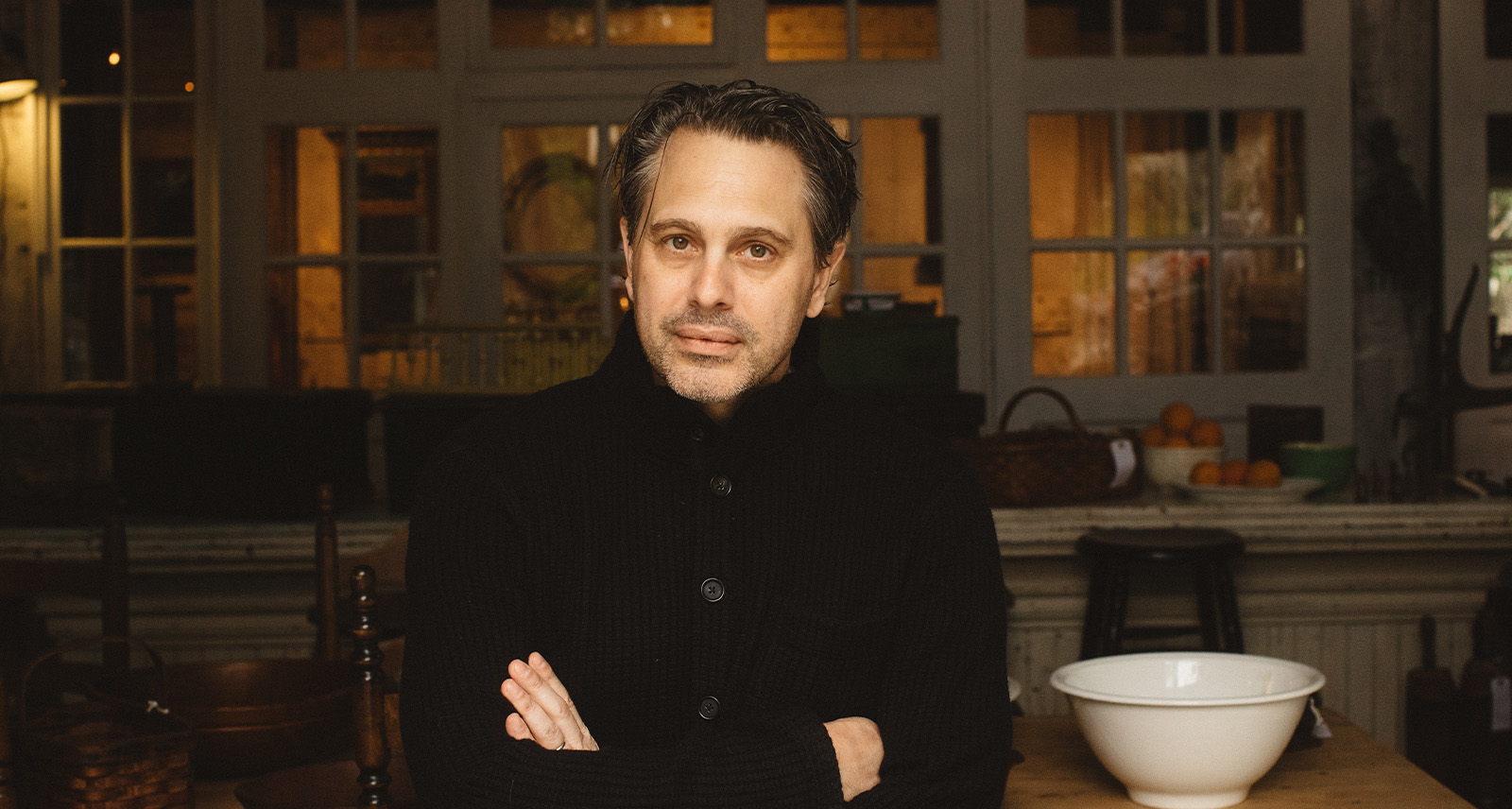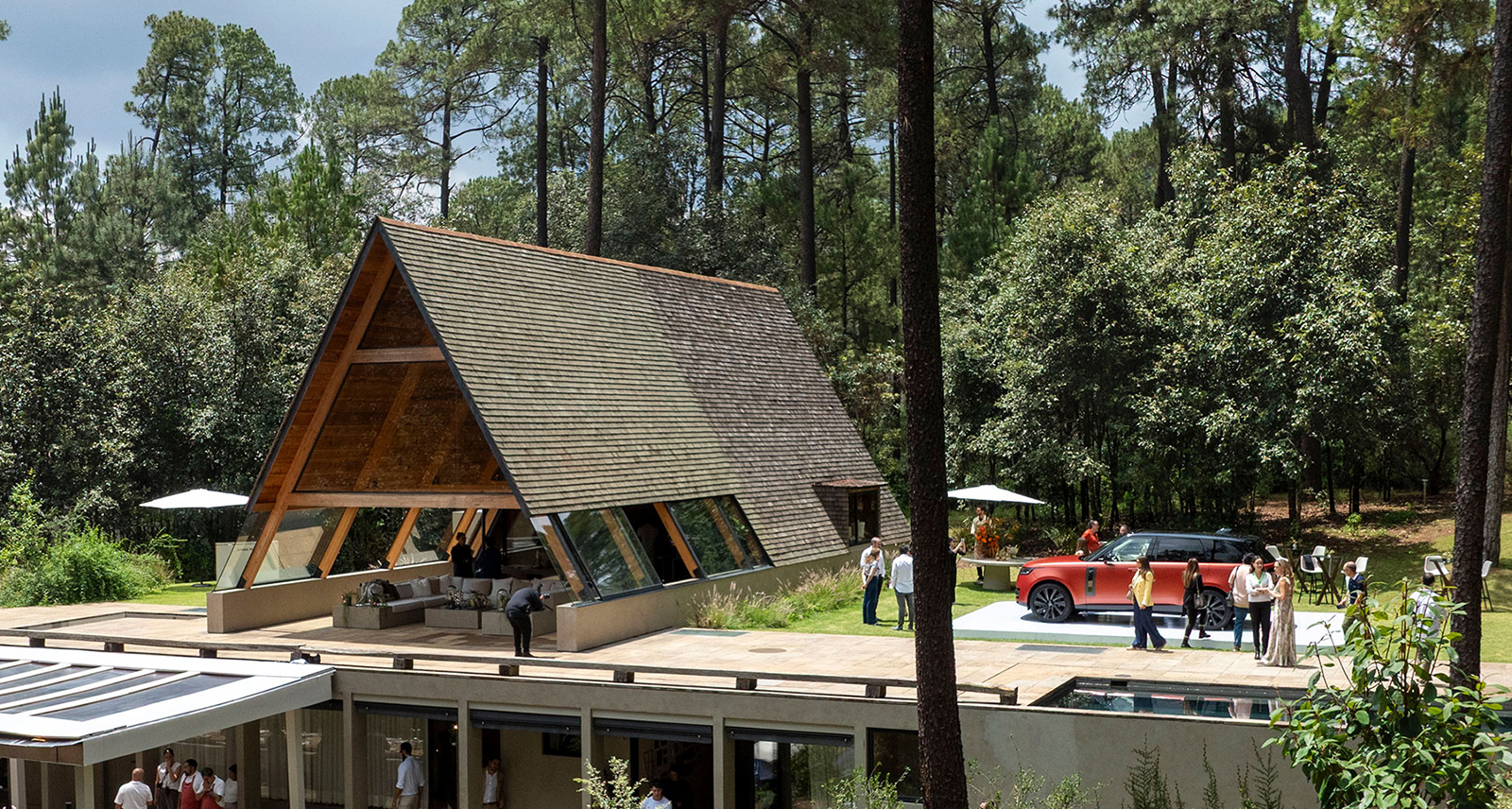Thomas Sadoski — From Hollywood to Northern Yemen and Back
The actor Thomas Sadoski has plenty of credits to his name — on the big screen, the small screen, and the stage — from the John Wick franchise to his most recent film Devotion. But the thing that he wants you to know about has nothing to do with his acting.
What Sadoski wants people to talk about is Yemen, where he’s recently returned from as part of his ongoing work with War Child Canada. “People need to know this is happening,” he says of the suffering inflicted by war in an already-poor country. “What’s happening is a pretty comprehensive failure of our shared humanity. In nothing resembling a civilized world should it be at all acceptable that millions of children be on the verge of death by starving. And that’s not hyperbole. That’s reality.”
“I refuse, for whatever reason, to allow the globe’s back to be turned to a people who are suffering precisely because of our ignorant involvement in a conflict that has nothing to do with us.”
Thomas Sadoski
He found it disturbing how little attention was being paid to “suffering that is, according to the United Nations, the greatest in the world as it exists right now, which is really saying something. And no one was talking about it.”
That lack of attention and the scale of the suffering are what made Sadoski want to be on the ground in Yemen, which War Child Canada says is their most dangerous area of operations.
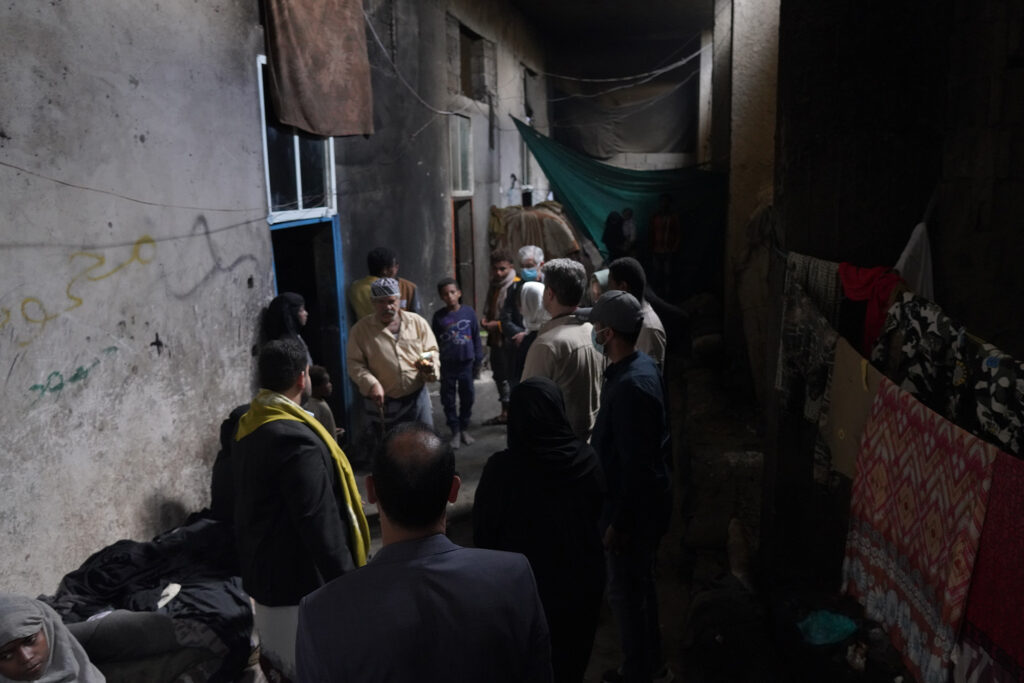
Most celebrity spokespeople and humanitarians would’ve contented themselves with raising awareness for War Child Canada, but Sadoski is a far cry from the usual Hollywood spokesperson. “I came of age in the nineties and there was a lot happening in terms of human rights at the time,” he says, referencing genocidal massacres in Srebrenica and Rwanda “and it landed with me in a really significant way, and inspired me going forward to continue paying attention. I have a deep love for the idea of my country, and part of that deep love is an appreciation for the tremendous opportunity being a citizen of my country avails. In exchange, I have an equally deep feeling of responsibility.”
“At a certain point, he says, “it’s not a matter of being unaware, it’s a matter of turning your back on a situation. And I refuse, for whatever reason, to allow the globe’s back to be turned to a people who are suffering precisely because of our ignorant involvement in a conflict that has nothing to do with us.”
“I have zero interest in helicoptering or private jetting into a war zone, taking some pictures and then getting the fuck out. It doesn’t do any good.”
Thomas Sadoski
There’s something about the way Sadoski speaks about Yemen, about his humanitarian work and about War Child Canada that stays with you. It’s equal parts impassioned plea and flabbergasted frustration. Despite the fact that he’s an actor, nothing in what he says or how he says it feels contrived or forced. He is genuinely passionate about the work being done on the ground by War Child Canada, and genuinely perplexed about why more people in his industry and in his position aren’t doing more.
“I have zero interest in helicoptering or private jetting into a war zone, taking some pictures and then getting the fuck out,” he says, “It doesn’t do any good. And the sad reality is that there are lot of people who think that it does.”
“You’re walking through an IDP (internally displaced persons) camp where there is no power, where there is no water, where there’s no sanitation, where there’s literally rivers of raw sewage running the middle of the camp. Smells of death and impending death so thick that you actually taste it and you can’t get it out of your nose. That’s the reality. Sitting down and having a conversation with a government minister where they’re literally holding a gun on you. That’s the reality there.”
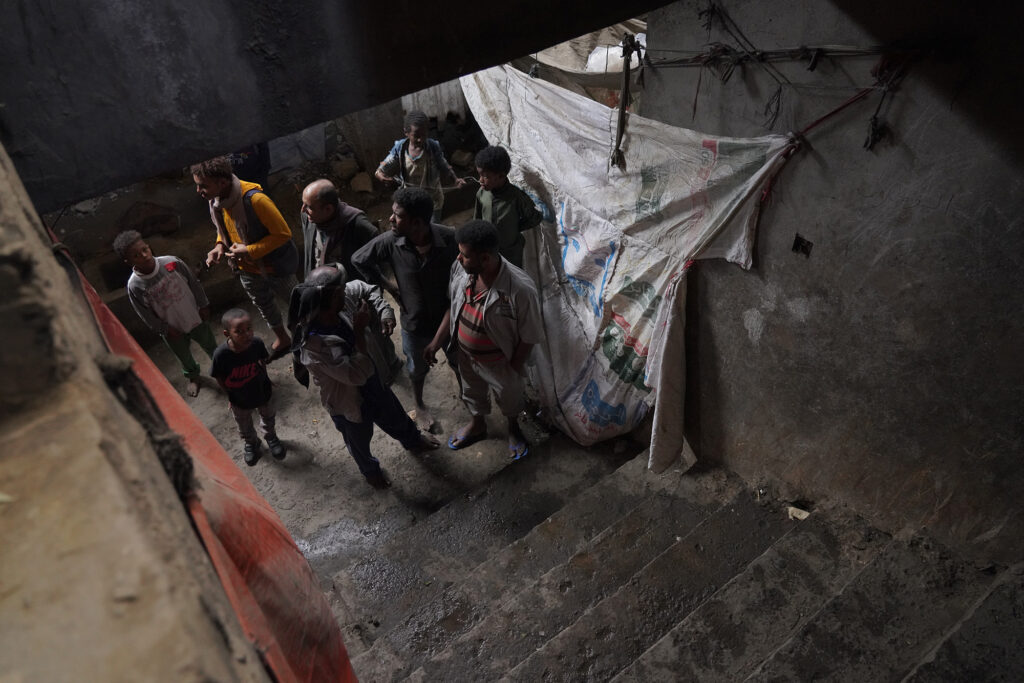
“Our job is not that fucking hard. It really isn’t. We have lots of time at our disposal. You’re getting paid an embarrassing amount of money to play dress up for a living. The least you can do for the world at large is to know what the fuck you’re talking about and talk about stuff that matters.”
There’s a lot of humanitarianism that amounts to wheel spinning; it’s incredibly difficult to break the cycle of suffering caused by war. What War Child Canada has had success with — and what’s generally accepted to be the gold standard in humanitarian work — is empowering local actors to rebuild their own communities.
It was War Child Canada’s ethos that impressed Sadoski and made him want to work with the organization. “To me, it’s unique in the NGO sphere in that it is actively working to make itself obsolete,” he explains. “It’s an organization that 99% of its staff is local to the conflict area. Empowering local communities leads to a healthy future. I don’t want to be associated with an organization that shows up with hundreds of tons of rice and puts all of the rice farmers in the area out of business. I don’t want to be responsible for accidentally destroying more lives. And what that requires is thought. It requires walking into a place and asking how can we best support them? Provide them with the resources they need?”
For War Child, this often means focusing on women and children. “The first to suffer in conflict are women and children,” Sadoski says, “that train is never, ever late.”
As is the case in Yemen. “To watch a child starve — to watch a child’s body break down from starvation to the point where the child, the baby, cannot physically produce tears, because the body has shut down that much is a horror unlike any other.”
“The word that kept on coming up with the kids that I talked to inside the school was ‘pride’.”
THomas Sadoski
Unfortunately, the governments of the world seem unmoved. Last year’s United Nations Appeal for Yemen — over 4 billion dollars to stabilize the situation, not remedy it — was only 55% funded. Instead, the United States has announced a 25% cut in funding to Yemen, while the Canadian government’s arms exports to Saudi Arabia — arms used in the war in Yemen — exponentially exceed the amount of aid it sends to Yemen.
Inaction only leads to one outcome. “What we will all have on our hands is a level of suffering and death that people don’t truly understand the severity the horror of,” Sadoski says. The heavy lifting falls on organizations like War Child to try and stave that off.
And it turns out that empowering local actors and entrusting them with efforts to rebuild their communities bears fruit more often than not, so long as people are prepared to listen to what they’re asking for and offer the support they need.
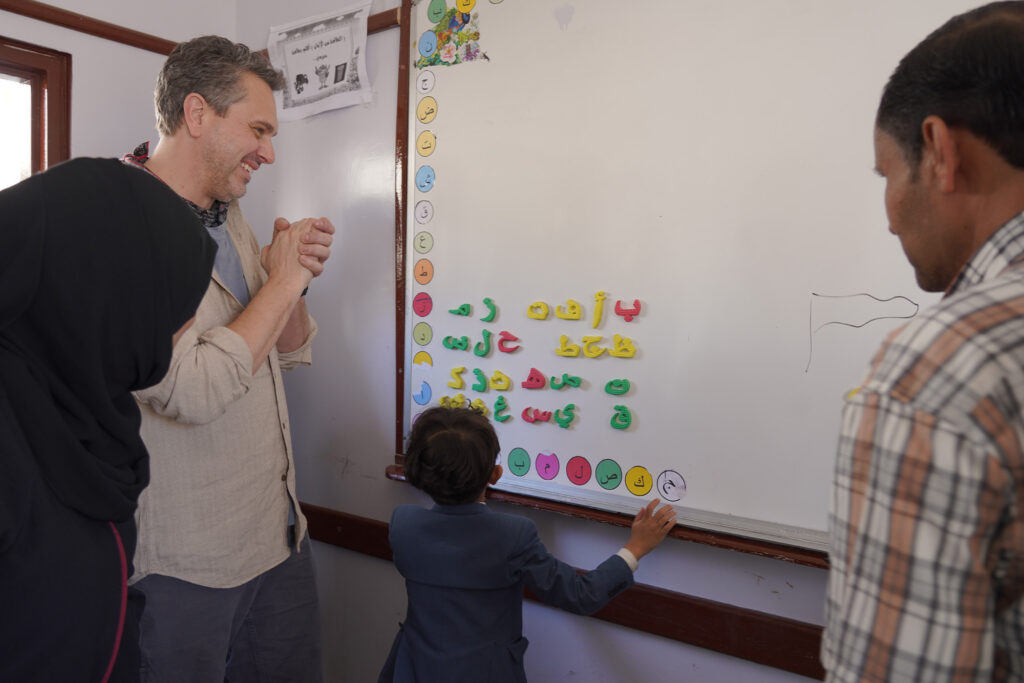
“In Northern Yemen,” Sadoski recalls of his recent trip, “in a region that is deeply, profoundly suffering, I walked into a school that War Child Canada runs with local partners and when you cross the threshold from outside those walls to the inside of the school, the change in the reality for those children was pretty extraordinary.”
“The word that kept on coming up with the kids that I talked to inside the school was ‘pride’. And to know that in any way, shape or form you’re responsible for giving pride to a kid whose entire world is surrounded with that level of war, just by itself is a pretty extraordinary thing.They were running and playing and doing all the stuff that kids do and it was absolutely beautiful.”
Learn more about War Child Canada here.
